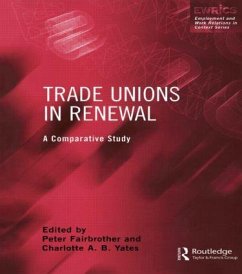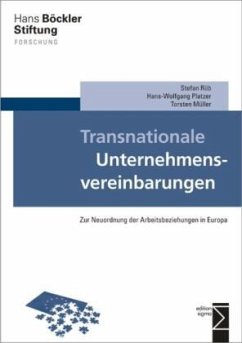
European Migration
What Do We Know?
Herausgegeben von Zimmermann, Klaus F.
Versandkostenfrei!
Versandfertig in 1-2 Wochen
228,99 €
inkl. MwSt.

PAYBACK Punkte
114 °P sammeln!
Developed countries, especially in Europe, face a number of issue related to migration: social and economic disruptions caused by the declining demand for unskilled labour and resulting unemployment, a shortage of skilled labour in many professions, increasing international competition for highly qualified human capital, radical demographic changes, and the forthcoming expansion of the European Union, which will trigger further immigration into major European countries and createnew market opportunities in Central and Eastern Europe.This suggests a need for a deeper knowledge of the causes and...
Developed countries, especially in Europe, face a number of issue related to migration: social and economic disruptions caused by the declining demand for unskilled labour and resulting unemployment, a shortage of skilled labour in many professions, increasing international competition for highly qualified human capital, radical demographic changes, and the forthcoming expansion of the European Union, which will trigger further immigration into major European countries and create
new market opportunities in Central and Eastern Europe.
This suggests a need for a deeper knowledge of the causes and consequences of increased labour mobility. This is especially important when it is associated with tension and fears among native populations. This book brings together analyses of migration issues in major European countries, and compares evidence with more countries that have traditionally seen the most immigration.
First, it studies migration streams since World War II, and reviews major migration policy regimes. Second, it summarizes the empirical evidence measuring wages, unemployment, and occupational choices. Third, it investigates how migrants affects the labour markets of their host countries, and evaluates econometric studies into the wage and employment consequences of immigration.
Surprisingly, there is wide evidence that immigration is largely beneficial for receiving countries. There might be phases of adjustment, but there is no convincing evidence that natives' wages are depressed or unemployment increases as a consequence of migrant inflow. However, there is a growing impression that migration does serve less and less the needs of the labour market. This suggests a stronger focus on economic channels of immigration, for which the book provides a conceptual basis and
the required empirical facts and institutional background.
new market opportunities in Central and Eastern Europe.
This suggests a need for a deeper knowledge of the causes and consequences of increased labour mobility. This is especially important when it is associated with tension and fears among native populations. This book brings together analyses of migration issues in major European countries, and compares evidence with more countries that have traditionally seen the most immigration.
First, it studies migration streams since World War II, and reviews major migration policy regimes. Second, it summarizes the empirical evidence measuring wages, unemployment, and occupational choices. Third, it investigates how migrants affects the labour markets of their host countries, and evaluates econometric studies into the wage and employment consequences of immigration.
Surprisingly, there is wide evidence that immigration is largely beneficial for receiving countries. There might be phases of adjustment, but there is no convincing evidence that natives' wages are depressed or unemployment increases as a consequence of migrant inflow. However, there is a growing impression that migration does serve less and less the needs of the labour market. This suggests a stronger focus on economic channels of immigration, for which the book provides a conceptual basis and
the required empirical facts and institutional background.












